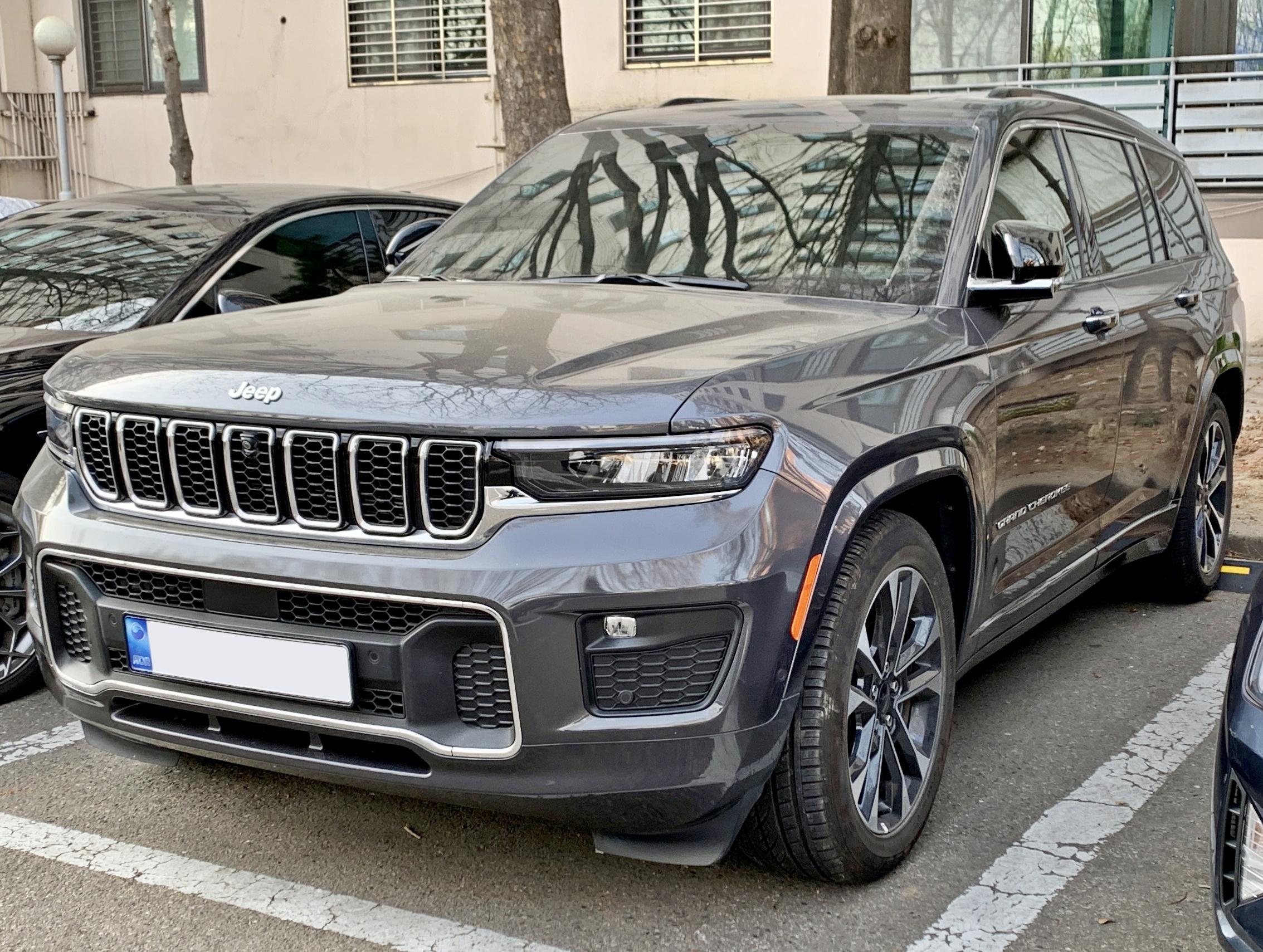How Big Is Jeep Grand Cherokee Gas Tank
Have you ever found yourself questioning just how far your Jeep Grand Cherokee can take you on a single tank of gas? The size of its gas tank plays a crucial role in determining the answer to that question. In this article, we will delve into the specifics of the Jeep Grand Cherokee’s gas tank size, giving you a clearer picture of just how big it really is. So buckle up and let’s take a closer look at this iconic SUV’s fuel capacity.
Table of Contents
- Overview of Jeep Grand Cherokee gas tank size
- Factors influencing the capacity of the gas tank
- Comparison with other SUVs in the same class
- Tips for maximizing fuel efficiency with the Grand Cherokee
- Importance of regular maintenance for the gas tank
- Final thoughts on the practicality of the Jeep Grand Cherokee gas tank
- Frequently Asked Questions
- Concluding Remarks
Overview of Jeep Grand Cherokee gas tank size
The Jeep Grand Cherokee gas tank size is an important factor to consider for those who are interested in this SUV. The gas tank size can determine how often you need to fill up and how far you can go on a full tank of gas. The Grand Cherokee has several different gas tank options, depending on the trim level and engine type.
For example, the standard gas tank size for the Jeep Grand Cherokee Laredo is 24.6 gallons, which is a decent size for everyday driving. If you opt for the Grand Cherokee Limited, you will get a larger gas tank size of 24.6 gallons as well, giving you more miles between fill-ups.
For those who want even more gas tank capacity, the Jeep Grand Cherokee Overland and Summit trims come with a 24.6-gallon gas tank. This allows for longer road trips without the need for frequent stops at the gas station. the gas tank size of the Jeep Grand Cherokee varies depending on the trim level, but all options provide ample capacity for most driving needs.

Factors influencing the capacity of the gas tank
When it comes to the capacity of the gas tank in a Jeep Grand Cherokee, there are several factors that can influence it. One of the main factors is the size of the tank itself. Jeep Grand Cherokees typically have gas tanks with capacities ranging from 24.6 gallons to 24.8 gallons.
Another factor that can affect the capacity of the gas tank is the model year of the Jeep Grand Cherokee. Newer models may have slightly larger tanks than older models, allowing for more fuel to be stored and extending the driving range of the vehicle.
Additionally, driving habits and conditions can also impact the capacity of the gas tank. Factors such as highway driving versus city driving, towing heavy loads, and even driving at high speeds can all affect fuel efficiency and how often you need to fill up your gas tank.
Comparison with other SUVs in the same class
Jeep Grand Cherokee is known for its impressive gas tank capacity, which is larger compared to many other SUVs in the same class. The Grand Cherokee comes equipped with a 24.6-gallon fuel tank, providing drivers with ample fuel capacity for long road trips and off-road adventures.
When compared to some of its competitors in the SUV market, the Jeep Grand Cherokee stands out for its generous gas tank size. For example, the Ford Explorer has a smaller 18.6-gallon fuel tank, while the Toyota 4Runner offers a 23-gallon tank. This gives the Grand Cherokee an edge in terms of fuel capacity, allowing drivers to go further without the need for frequent fill-ups.
Having a larger gas tank like the one in the Jeep Grand Cherokee can be a game-changer for drivers who prioritize convenience and efficiency. With the ability to hold more fuel, the Grand Cherokee allows for longer stretches between gas station stops, making it a practical choice for those who enjoy long drives or outdoor adventures. the size of the gas tank can make a significant difference in the overall driving experience and usability of an SUV.
Tips for maximizing fuel efficiency with the Grand Cherokee
The Jeep Grand Cherokee is a popular SUV known for its power and performance. If you’re looking to maximize fuel efficiency with your Grand Cherokee, there are a few tips you can follow to get the most out of your gas tank.
Firstly, make sure to keep up with regular maintenance such as oil changes, tire rotations, and air filter replacements. A well-maintained vehicle will run more efficiently and use less fuel. Additionally, checking your tire pressure regularly can help improve fuel efficiency by reducing drag on the road.
Another tip for maximizing fuel efficiency with the Grand Cherokee is to drive smoothly and avoid aggressive acceleration and braking. Using cruise control on the highway can also help maintain a constant speed and save on fuel. Lastly, consider removing any excess weight from your vehicle, as carrying unnecessary items can decrease fuel efficiency.
Importance of regular maintenance for the gas tank
Regular maintenance for your gas tank is crucial for keeping your vehicle running smoothly and efficiently. Over time, sediment and debris can build up in the tank, which can clog fuel lines and filters. This can lead to poor engine performance and decreased fuel efficiency. By regularly maintaining your gas tank, you can prevent these issues and ensure that your vehicle is running at its best.
Another important reason to regularly maintain your gas tank is to prevent rust and corrosion. Moisture can accumulate in the tank, especially during colder months, leading to rust formation. Rust can cause leaks and other damage to the tank, which can be costly to repair. By inspecting and cleaning your gas tank regularly, you can prevent rust and corrosion from occurring.
Proper maintenance of your gas tank can also help extend the life of your vehicle. By keeping the tank clean and free of debris, you can prevent damage to your fuel system and avoid costly repairs down the road. In addition, regular maintenance can help you catch any potential issues early on, allowing you to address them before they become major problems.
Final thoughts on the practicality of the Jeep Grand Cherokee gas tank
I have to say, the practicality of the Jeep Grand Cherokee gas tank is quite impressive. With a capacity of up to 24.6 gallons, this SUV can take you on long journeys without the need for frequent refueling stops. Whether you’re hitting the open road for a weekend getaway or just running errands around town, the generous gas tank size of the Grand Cherokee gives you the freedom to go the distance.
One thing to consider is the fuel efficiency of the Grand Cherokee. While the size of the gas tank is substantial, it’s also important to keep in mind that this SUV is not the most fuel-efficient option on the market. However, with proper maintenance and driving habits, you can still enjoy the convenience of a larger gas tank without breaking the bank at the pump.
the Jeep Grand Cherokee gas tank strikes a good balance between size and practicality. It provides enough fuel capacity to handle your daily commute or weekend adventures, while also offering a decent fuel economy for its class. So whether you’re a road-trip enthusiast or just need a reliable vehicle to get you from point A to point B, the Grand Cherokee’s gas tank size is certainly something to appreciate.
Frequently Asked Questions
Q: How big is the gas tank on a Jeep Grand Cherokee?
A: The gas tank capacity on a Jeep Grand Cherokee can vary depending on the model year and trim level. However, most Grand Cherokees have a gas tank capacity of around 24.6 gallons.
Q: How does the gas tank size of the Jeep Grand Cherokee compare to other SUVs in its class?
A: The gas tank size of the Jeep Grand Cherokee is comparable to other midsize SUVs in its class. Some competitors may have slightly larger or smaller gas tanks, but the difference is usually not significant.
Q: How far can a Jeep Grand Cherokee go on a full tank of gas?
A: With a gas tank capacity of around 24.6 gallons and an average fuel efficiency of 20 miles per gallon, a Jeep Grand Cherokee can travel approximately 492 miles on a full tank of gas.
Q: Are there any tips for maximizing fuel efficiency on a Jeep Grand Cherokee?
A: To maximize fuel efficiency on a Jeep Grand Cherokee, it is recommended to keep up with regular maintenance, drive conservatively, avoid idling for long periods of time, and keep the tires properly inflated. Additionally, using higher octane fuel may also help improve fuel efficiency.
Q: Can the gas tank size of a Jeep Grand Cherokee be modified or upgraded?
A: Modifying or upgrading the gas tank size of a Jeep Grand Cherokee is not a common practice and may require extensive modifications to the vehicle. It is recommended to consult with a professional mechanic or automotive specialist before attempting to modify the gas tank size.
Concluding Remarks
the size of the Jeep Grand Cherokee’s gas tank is an important factor to consider for those who want to maximize their driving range and fuel efficiency. Whether you need a larger tank for longer road trips or a smaller tank for city driving, the Grand Cherokee offers a variety of options to suit your needs. By understanding the size of the gas tank, you can better plan your journeys and enjoy the ride in this iconic SUV. So, next time you hit the road in your Jeep Grand Cherokee, remember to keep an eye on your gas tank and fuel up accordingly. Drive safe and happy adventures!
